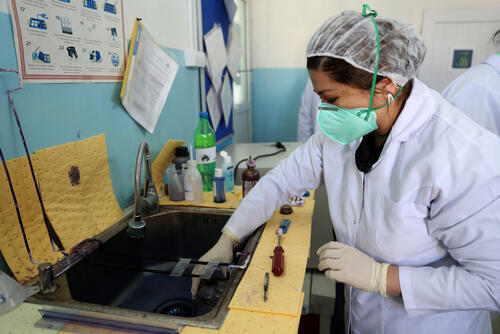
190
19
53
53
The MSF-Ministry of Health programme in Tajikistan aims to demonstrate that treating children for TB is feasible and that the disease, including its drug-resistant forms, can be successfully diagnosed and cured. The model of care encompasses active case finding by contact tracing, testing, treatment, drug compounding (preparing personalised medications for patients), and the monitoring and management of side effects. The programme offers psychosocial support, with adherence counselling and play therapy, schooling for hospitalised children, and care for children with HIV co-infection and/or severe malnutrition. By the end of 2017, some 190 patients had started treatment.
The project is ground-breaking in its use of new combinations of drugs with children of all ages. In 2017, the team celebrated two ‘firsts’: one patient with extensively drug-resistant TB successfully completed treatment on a combination of bedaquiline and delamanid, and two multidrug-resistant patients successfully completed a shorter-course regimen. Additionally, an updated paediatric treatment protocol developed by MSF was adopted as a national programmatic guideline in 2017. To strengthen the Ministry of Health’s capacity, MSF conducted 20 training sessions for 425 family doctors, nurses and healthcare staff.
At the Kulob paediatric and family HIV project in the south of Tajikistan, MSF works to reduce morbidity and mortality among children with HIV/AIDS and their families, focusing particularly on opportunistic infections (especially TB), preventing mother-to-child transmission, and infection control to prevent the transmission of blood-borne infections. Since the project began in 2015, MSF has started 134 patients on treatment.
In 2017, MSF supported the development of two medical waste zones and the renovation of patient consultation facilities. The team conducted 101 training sessions – with 1,767 participants – on topics ranging from clinical best practices to prevention measures, disclosure processes, and adherence counselling, and also set up the first patient support groups for parents of children living with HIV.


















